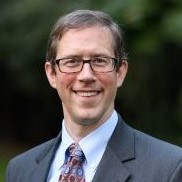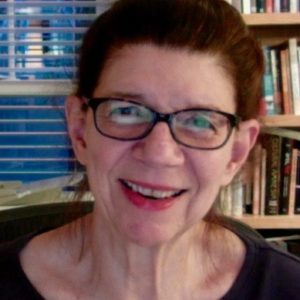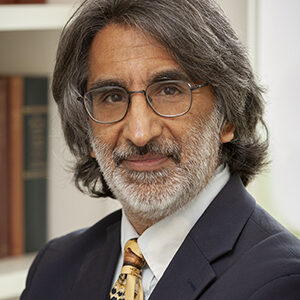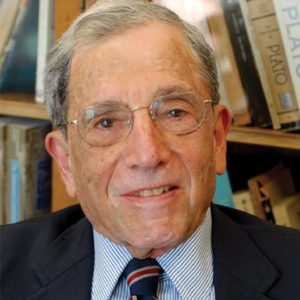Chinua Achebe’s Things Fall Apart & No Longer at Ease
Reflect on two great novels from the father of modern African literature.
July 11–15, 2022
Washington, DC
For the fourth week of the Political Studies Program, we will continue our exploration of the American regime, with a focus on the Black experience.
One seminar will consider the question of slavery during the American Founding, while another will explore the contributions of African Americans – from Douglass to Washington, Du Bois, and Malcolm X – to American political thought.
Image Credit: Statue of Frederick Douglass, Cam Pac Swire via Flickr | Frederick Douglass, an American Slave 01, Byronv2 via Flickr
Diana Schaub on the Life and Political Thought of Frederick Douglass
This course is part of our residential Political Studies Program. Fellows participate in morning seminars and meet prominent men and women in public life over afternoon and evening sessions. Up to 36 fellows will be selected.

Thomas Merrill is an associate professor in the School of Public Affairs at American University. He is the author of Hume and the Politics of Enlightenment. He is also the co-editor of three edited volumes, including The Political Thought of the Civil War.

Thomas Merrill is an associate professor in the School of Public Affairs at American University. He is the author of Hume and the Politics of Enlightenment, which won the Delba Winthrop Prize for Best Recent Work in Political Philosophy. He is also the co-editor of three edited volumes, including The Political Thought of the Civil War and has held fellowships from Harvard, Princeton, and the American Enterprise Institute. He was a senior research analyst for the President’s Council on Bioethics during the George W. Bush administration and is the associate director of the Department of Government and, more recently, as department chair.

Diana Schaub is a nonresident senior fellow at the American Enterprise Institute (AEI), where her work is focused on American political thought and history, particularly Abraham Lincoln, Frederick Douglass, African American political thought, Montesquieu, and the relevance of core American ideals to contemporary challenges and debates. Concurrently, she is Professor Emerita of Political Science at Loyola University Maryland, where she taught for almost three decades.

Diana Schaub is a nonresident senior fellow at the American Enterprise Institute (AEI), where her work is focused on American political thought and history, particularly Abraham Lincoln, Frederick Douglass, African American political thought, Montesquieu, and the relevance of core American ideals to contemporary challenges and debates. Concurrently, she is Professor Emerita of Political Science at Loyola University Maryland, where she taught for almost three decades.
An expert in political philosophy, Dr. Schaub has lectured on a variety of topics and participated in conferences around the country. She has contributed chapters to multiple books on Shakespeare, liberal education, women, and religion, and she is the author of three books: His Greatest Speeches: How Lincoln Moved the Nation (St. Martin’s Press, 2021); What So Proudly We Hail: The American Soul in Story, Speech, and Song, coedited with Amy and Leon Kass (ISI Books, 2011); and Erotic Liberalism: Women and Revolution in Montesquieu’s “Persian Letters” (Rowman & Littlefield, 1995). Her monograph Emancipating the Mind: Lincoln, the Founders, and Scientific Progress (AEI, 2018) is based on her remarks at the 2018 Walter Berns Constitution Day Lecture.
Dr. Schaub has also been published in the popular press, including in the Baltimore Sun, the Claremont Review of Books, Commentary, and the Wall Street Journal.
Dr. Schaub has a PhD and an MA in political science from the University of Chicago. Her BA in political science is from Kenyon College.
Readings forthcoming.
Readings forthcoming.
Readings forthcoming.
Readings forthcoming.
Readings forthcoming.

Martha Bayles
Martha Bayles is a fellow at the Institute for Advanced Studies in Culture at the University of Virginia, and since 2003 she has taught humanities at Boston College. She is currently at work on a monograph on the threats to independent journalism around the world; and a book about the importance of “voluntary restraint” in the American tradition of free speech.

Akhil Reed Amar
Akhil Reed Amar is Sterling Professor of Law and Political Science at Yale University, where he teaches constitutional law in both Yale College and Yale Law School. He is Yale’s only currently active professor to have won the University’s unofficial triple crown — the Sterling Chair for scholarship, the DeVane Medal for teaching, and the Lamar Award for alumni service. He hosts a weekly podcast, Amarica’s Constitution.

Adam J. White
Adam J. White is the Laurence H. Silberman Chair in Constitutional Governance and senior fellow at the American Enterprise Institute, where he focuses on the Supreme Court and the administrative state. Concurrently, he codirects the Antonin Scalia Law School’s C. Boyden Gray Center for the Study of the Administrative State.

Ralph Lerner
Ralph Lerner is the Benjamin Franklin Professor Emeritus in the College and professor emeritus in the Committee on Social Thought at the University of Chicago. He is the author, most recently, of Naïve Readings: Reveilles Political and Philosophic (University of Chicago Press).

Thomas Merrill
Thomas Merrill is an associate professor in the School of Public Affairs at American University. He is the author of Hume and the Politics of Enlightenment. He is also the co-editor of three edited volumes, including The Political Thought of the Civil War.

Diana Schaub
Diana Schaub is a nonresident senior fellow at the American Enterprise Institute (AEI), where her work is focused on American political thought and history, particularly Abraham Lincoln, Frederick Douglass, African American political thought, Montesquieu, and the relevance of core American ideals to contemporary challenges and debates. Concurrently, she is Professor Emerita of Political Science at Loyola University Maryland, where she taught for almost three decades.